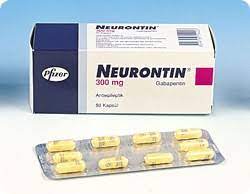Policies - Compliance - Culture – Asrar Qureshi’s Blog Post #839
Policies - Compliance - Culture – Asrar Qureshi’s Blog Post #839
Dear Colleagues! This is Asrar Qureshi’s Blog Post #839 for Pharma Veterans. Pharma Veterans aims to share knowledge and wisdom from Veterans for the benefit of Community at large. Pharma Veterans Blog is published by Asrar Qureshi on WordPress, the top blog site. Please email to asrar@asrarqureshi.com for publishing your contributions here.
 |
| Elizabeth Holmes - CEO Theranos |
 |
| Pfizer gabapentin |
Pharmaceutical industry is regarded as a highly regulated industry and rightly so. At every step, regulations are applied. The data generated during production and quality control is religiously documented and vetted at various levels. Research data is subjected to even more rigorous vetting. When the local or international teams visit for inspection, their main emphasis is on reviewing documents. The process is simple; they ask for SOPs, review these, and then ask for compliance reports. Compliance becomes the key parameter because writing a nice SOP is easy, but if it is not complied with, it is of no use.
Despite strict regulations, the instances of non-compliance or outright violation are not uncommon. The commonest form of violation is tampering with evidence/ falsifying data. Let us have a look at some cases.
Case #1
Ranbaxy Laboratories, an Indian pharmaceutical company, was caught falsifying data in 2008. The company falsified data on drug applications for 25 of its products, including cholesterol-lowering drugs, antibiotics, and pain killers. The falsified data included results of stability studies, which are used to assess the shelf life of drugs.
The USFDA found that Ranbaxy had falsified data by:
• Refrigerating samples that were supposed to be stored at room temperature
• Misreporting stability test results that were conducted over days instead of months
• Falsifying data on the manufacturing process
• Tampering with records
The FDA banned the importation of Ranbaxy drugs from the US and revoked the approval of 25 of the company's drug applications.
The scandal had a significant impact on Ranbaxy's business. The company's stock price plummeted and it lost market share. Ranbaxy also had to recall millions of doses of its drugs.
In addition to the USFDA action, Ranbaxy also faced criminal charges in the US. In 2013, the company pleaded guilty to felony charges of making false statements to the FDA and agreed to pay $500 million in fines. The company also agreed to implement a corporate compliance program to improve its data integrity practices.
Case #2
GlaxoSmithKline (GSK) faced allegations of data manipulation in clinical trials for several drugs, including the antidepressant paroxetine. It was revealed that certain negative findings from clinical trials were not reported or were downplayed, leading to concerns about the accuracy of safety and efficacy information presented to regulators and healthcare professionals.
Case #3
Pfizer ($PFE) agreed to pay $325 million to wrap up claims that its Parke-Davis unit touted the epilepsy drug Neurontin (gabapentin) for uses not approved by the USFDA, costing healthcare payers millions in unnecessary spending.
It was Pfizer's second round of off-label Neurontin settlements: In 2004, the company paid out $430 million in a settlement with the U.S. Justice Department. The drugmaker's Warner-Lambert unit pleaded guilty to two violations of the Food, Drug & Cosmetic Act and paid civil and criminal penalties for promoting gabapentin as a treatment for bipolar disorder, ADHD, migraine headaches and other types of pain.
Earlier, Pfizer had agreed to pay $190 million to settle a federal antitrust lawsuit claiming that the company did some questionable maneuvering to keep cheaper generics off the market.
Case #4
Although not strictly a pharmaceutical company, Theranos, a health technology firm, faced scrutiny for misleading claims about its blood-testing technology. The company was accused of manipulating and falsifying data to exaggerate the capabilities of its devices, which raised concerns about patient safety and the reliability of diagnostic results. Both co-founders are in jail now.
Case #5
Apotex, a Canadian pharmaceutical company, faced allegations of data manipulation related to testing practices for some of its products. The company was accused of retesting products multiple times until favorable results were obtained, potentially putting the quality and safety of its products at risk.
These are just a few examples of the many ways in which data integrity can be compromised in the pharmaceutical industry. This is despite the fact that pharmaceutical companies have strong controls in place to prevent data integrity violations.
Reason for Violations – Organization Culture
Culture is the only reason why such things may happen. Within the context of culture, three broad categories are discernible.
One, the organization as a whole does not believe in strict controls. It comes from the top and the message is loud and clear; do anything but try not to get caught.
Two, the organization does not endorse malpractices, but some managers coerce their subordinates to do the wrong. It may be to enhance their performance way above others and get benefitted, or it may be to survive under tough conditions. The result is the same. In the same category, employees can also be included who may be doing it for the same reasons.
Three, the organization does not have a culture of transparency and open communication which would encourage employees if they saw the wrong happening. This is a worldwide issue and is quite severe in large, multilayer organization. The employee does not know who to inform and what will it lead to. Even in the developed countries, most whistleblowers suffer by way of job loss and other penal measures.
What Should be Done?
While it is essential to build elaborate controls via policies, SOPs, and checks, human behavior cannot be molded. The only thing which can mold it is culture of the organization. If the culture of the organization promotes and insists on transparency and doing the right thing as per laid down rules, the employees shall be motivated or compelled, as the case may be, to do so. This would also include a culture that promotes reporting of malpractices and protecting those who blow the whistle.
Compliance can never be ensured without a culture of responsibility and accountability. It has to come from top; they must demonstrate consistently that they expect adherence to regulations, SOPs, and instructions; the employees shall fall in line quickly.
Concluded.
Disclaimer: Most pictures in these blogs are taken from Google Images and Pexels. Credit is given where known; some do not show copyright ownership. However, if a claim is lodged at any stage, we shall either mention the ownership clearly, or remove the picture with suitable regrets.




Comments
Post a Comment